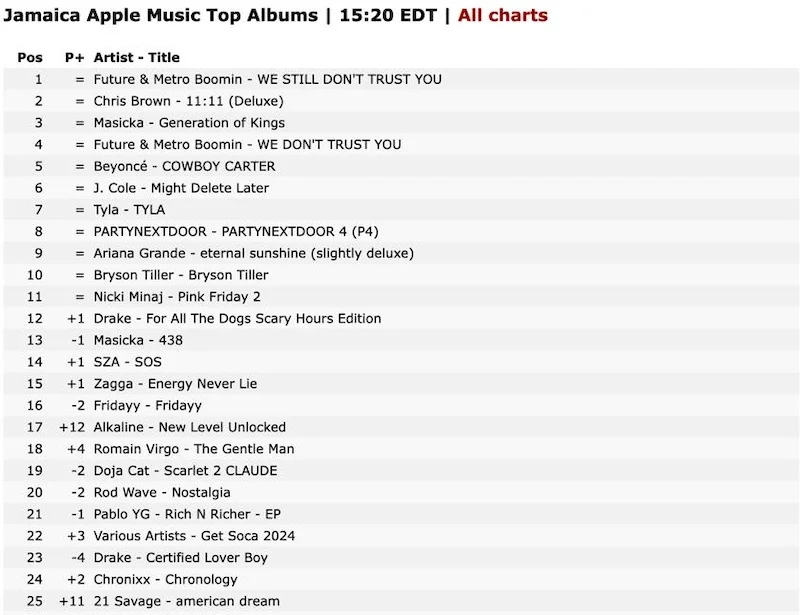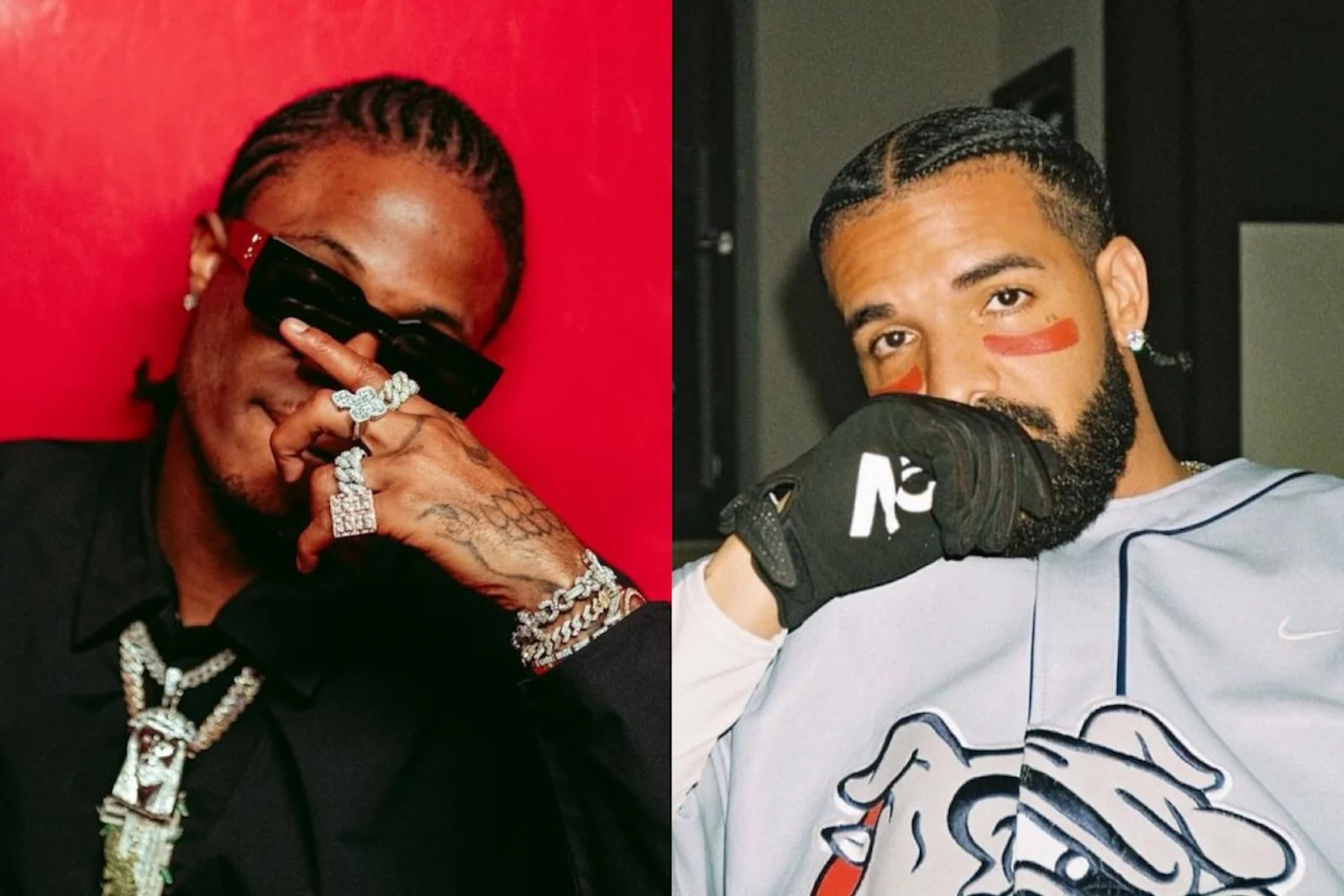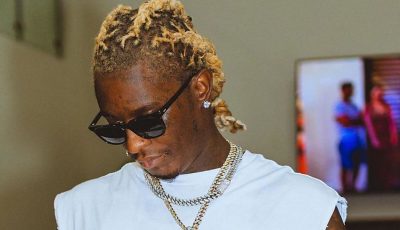The demand for music on Apple Music in Jamaica is mostly leaning towards Hip Hop/R&B Music, according to the data Urban Islandz analyzed from the platform. Could this be indicative of a market lacking full length albums while over saturated with singles?
While a few dancehall and reggae acts still make the cut for the top 20 albums on Apple Music Jamaica, the chart predominantly comprises US Hip Hop and R&B artists. Apple Music data suggests that Jamaican listeners, though they appreciate the music from the local culture, are just as enraptured by the same mainstream artists and popular culture as Black Americans. The most tell-tale sign of this was perhaps the tally-topping landing of Future and Metro Boomin’s We Still Don’t Trust You upon its debut.
The follow-up to the duo’s We Don’t Trust You was released on April 12 and expeditiously debuted at No. 1 on the Jamaican Apple Music chart. On the current chart, its predecessor holds the No. 5 spot after peaking at No. 1 upon its debut on March 22 as well. The riveting feud between J. Cole and Kendrick Lamar has also seemingly piqued the interest of listeners on Apple Music in Jamaica as the former’s latest album, Might Delete Later, clocks in at No. 11. Concurrently, other rap albums like Drake’s For All The Dogs Scary Hours Edition and Nicki Minaj’s Pink Friday 2 lands at No. 15 and 13 respectively.
Meanwhile, Masicka’s Generation of Kings stands out as the only dancehall album among the top 5, as it makes its return to the coveted No. 1 spot months after its record-making 3-month standstill atop the chart. The Def Jam dancehall star made a double appearance in the top 20 with his debut album 438, which also charted at No. 12. The freshman effort became the first project to remain in the top 10 all year on Apple Music Jamaica. In 2022, it also ended the year as Jamaica’s No. 1 album on Spotify Wrapped.
Jamaican music lovers are also reveling in the musings of the prolific and undisputed king of R&B Chris Brown, whose album 11:11 takes the No. 2 spot on the current chart, months after bowing out of the coveted No. 1 spot. A Boogie’s EP ALONE landed at No. 3, and Beyoncé landed at No. 4 with Cowboy Carter, which was also previously a No. 1 album. Overall, albums originating from Canada and the U.S. accounted for 75% of the top 20, while Jamaican artists took 15% of the cake, and South Africa and South Korea each represent 5% thanks to Tyla’s self-titled debut album, which claimed the No. 7 spot and South Korean heartthrob Jimin whose EP titled FACE landed at No. 14 on the chart.
If we look a little wider at the lens of this microscope to examine the top 50 albums, North America still dominates at 70%. It’s of note that Drake alone is responsible for 22.85% of that share, as he boasts a whopping 8 albums on this tally. The most consumed albums on Apple Music Jamaica that actually originate from Jamaica account for 24% of the top 50. Some albums rotate in and out, while others are staple members of the chart. Alkaline’s New Level Unlocked sits rather comfortably at No. 18, while Top Prize landed the No. 34 spot. Shenseea’s Alpha also makes an appearance at No. 46, and for the throwback – Vybz Kartel’s More Up 2 di Time wraps up the top 50. Other territories (the UK, South Africa, South Korea, and Trinidad and Tobago) represent about 6% of the leaderboard.
While it is clear that Jamaican music listeners dabble heavily in hip hop/R&B catalogs, further analysis indicates that this might say more about the volume of albums being generated by these artists compared to that of the dancehall and reggae music acts. A quick scan of the Top Songs chart on the streaming platform revealed that the top 20 most consumed singles were all from the dancehall genre. Further to this, the top 50 songs were also dominated by dancehall music artists, with the only five exceptions being Tyla’s “Jump” featuring Gunna and Skillibeng at No. 40, Chris Brown’s “Angel Numbers” and “Residuals” landing at No. 33 and No. 28 respectively, SZA’s “Snooze” at No. 27 and Drake’s latest release “Push Ups” at No. 29.
The juxtaposition of the two charts suggests that the consumption of hip hop/R&B music by listeners in Jamaica can primarily be attributed to the incessant generation of these albums and less so to inherent interest, though the latter does play a less significant yet obvious role. Still, the clear infatuation with the individual music of their own culture is evident in the streams. So, does it logically follow that perhaps if more dancehall and reggae acts channeled their efforts in producing albums at a larger volume and more frequently, then they could easily dominate this and many other DSP charts?
The most notable dancehall album released in the last six months is Generation of Kings by Masicka. After locking in at No. 1 on Apple Music Jamaica for three consecutive months and becoming the longest-running No.1 album that the platform has seen to date, the project has now made a glorious return to the coveted position after dabbling in the top 5 for weeks. The fact is, at any given time, there are never enough dancehall or reggae albums competing in the market, and there is just so much unused space. Alas, Legend: The Best of Bob Marley and The Wailers has been No. 1 on Billboard’s Reggae Albums chart for well over 200 weeks. Meanwhile, it is commonplace for hip-hop/R&B artists to push back their album release dates to avoid clashing with certain counterparts.
This distinct contrast explains why hip hop and R&B music can so effortlessly dominate the Top Albums chart while dancehall music showboats on Top Songs. The competition for Jamaican artists is about the singles and less so about the projects. Many earn bragging rights for having their song be the most streamed of the season or, better yet, the year. Hence, YouTube is the primary platform for releasing music in Jamaica. The majority of dancehall artists that have risen to prominence over the last few years and garnered international attention are much more known for individual songs than full-length projects or extended plays.
Teejay had an absolute chokehold on the industry and kept dancehall music permeating various media globally with his mammoth hit “Drift,” a single whose success renewed the hope of those pining over dancehall music’s return to the mainstream. Skillibeng’s “Crocodile Teeth” was also released as a single and, after garnering international attention, inspired a 12-track album by the same name. On the other side of the spectrum, it is more common for hip-hop and R&B artists to release individual songs as a lead single from an album or to introduce a new project. Oftentimes, it is the release of the album that lends the opportunity for fans to handpick their favorite tracks and make them popular.
To illustrate this further, we can look at a recent No. 1 song on Apple Music Jamaica. The Valiant track is titled “Lumbah,” and it was released to Apple Music on March 7. However, the official music video debuted on YouTube almost a month prior, on February 10, 2024. Over on the Top Albums chart, Future, and Metro Boomin long enjoyed the coveted No. 1 spot with their album We Still Don’t Trust You, even while the previously released We Don’t Trust You trailed closely behind. Masicka is perhaps the only Jamaican dancehall artist to make it to the top of the Apple Music Top Albums chart this year, and he has definitely spent the most time there.

While the takeaway is subjective, Apple Music data reveals a curious disparity between the albums and songs that are being consumed in Jamaica. Over on the Billboard chart, there is typically a strong correlation between the Billboard 200 and the Hot 100 – at least a majority of the time. This contrast leads fans and critics alike to question why Jamaican artists don’t produce albums at a higher rate and what some of the factors are thwarting their efforts to do so. It could just be the culture or yet another indication of how the genre still needs to be streamlined and supported by local legal frameworks.






